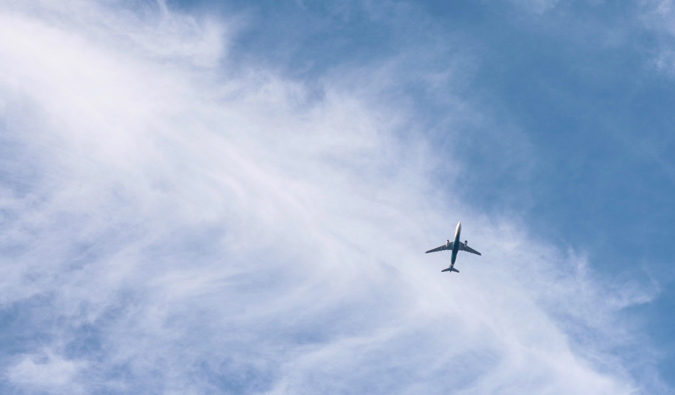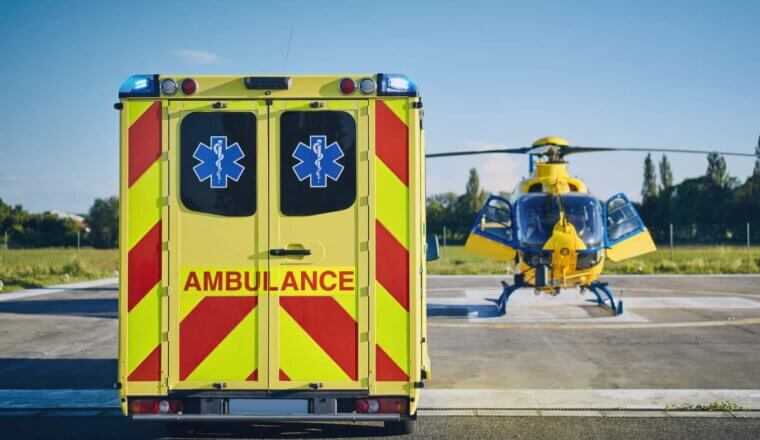
Last Updated: 1/12/24 | January 12th, 2024
Travel insurance is probably the most boring topic when it comes to planning a trip. Nobody wants to focus on the worst-case scenario before they even leave home (myself included).
Plus, researching insurance is just plain tedious. There is a lot of fine print to scour, requiring you to read over the minutiae of each insurance plan before you pick the one that’s best for you. It’s a hassle.
But it’s also the most important thing you can do before a trip. Should something terrible happen while you’re on the road, you want to have the confidence that your insurance plan will cover you.
While none of us want to imagine getting hurt or robbed or having to cancel our trip, the fact of the matter is that these things happen. It’s rare, but things you don’t expect can happen when you travel.
I never expected to break my camera in Italy.
I never expected to rupture my eardrum scuba diving in Thailand.
I never expected to get stabbed in Colombia.
And while these unfortunate events are few and far between, it’s always better to be safe than sorry (trust me!). Medical bills aren’t cheap. Emergency evacuations cost tens of thousands of dollars (if not more!). Unless you have a stockpile of disposable income, chances are you’ll want to buy travel insurance for your next trip.
But there are a lot of misconceptions about travel insurance. That means you’ll alsowant to learn everything you can about your plan and the company that is covering you before you go.
Does your plan cover pre-existing conditions?
Is there an age limit or a limit on how long you can be out of your home country?
Will you be able to see doctors for non-emergency visits? What about dental coverage?
There is a lot to learn if travel insurance is new to you.
To help you make sense of it all, I’ll go over what is ACTUALLY covered by reputable travel insurance plans, so you’ll know what to look for.
Table of Contents
What Travel Insurance DOES Cover
Medical Emergencies
Chances are when you think of travel insurance, you’re picturing a medical emergency. While accidents or serious illnesses while traveling abroad are rare, here’s what you can expect to be covered by a reputable insurance company:
- Hospitalization fees
- Surgery costs
- Outpatient treatment costs
- Visits to registered medical practitioners
- Prescribed medicines
- Medical evacuation (usually this is just to a local medical facility unless you have a more comprehensive plan from a company like Medjet. See below for more on evacuation.)
Emergency Evacuation
Medical evacuations due to accidents or natural disasters can cost upwards of $500,000 USD. Naturally, this is where having a solid insurance plan comes in handy. Most insurance plans evacuate you to “the nearest acceptable facility” in case of injury or natural disaster. Contrary to popular belief, they don’t have to send you home.
In some cases, you will be repatriated back to your home country, but only if the doctor thinks it necessary. This is rare though and usually only occurs in cases where local medical staff can’t provide the assistance you need. That’s why companies like Medjet exist as they ensure you get home and not just to a nearby “acceptable” facility. (Read more about Medjet and emergency evacuation.)
Dental Emergencies
As with other medical emergencies, what’s covered here is accidental injury and sudden pain. For example, chipped teeth or a sudden infection. General checkups are not covered, nor is major dental work that doesn’t relate to an injury or accident sustained abroad. If you just want your teeth cleaned or need a new filling, you’ll have to pay for that out of pocket.
Most policies have limited dental coverage when compared to the rest of your medical emergency coverage (usually, it’s under $1,000 USD).
Accidental Death or Dismemberment
I know it’s never fun thinking about something like this happening, but knowing that you’re covered will give you and your loved ones peace of mind.
Should the worst happen, most insurance plans cover the costs of a family member coming to get your body to take it home. Some policies will also include cremation services or burial overseas, should that be preferred.
Note that this only covers death or dismemberment due to a sudden accident. Common exclusions include death from alcohol or illicit narcotics, suicide, or pre-existing conditions not covered by the plan.
Policies usually offer between $5,000-50,000 USD in death/dismemberment coverage. If it’s a priority for you, be sure to purchase a policy from a company that includes death and dismemberment coverage.
Flight Delays and Cancellations
If your flight gets delayed or cancelled, you can apply for compensation from your travel insurance provider (assuming the airline doesn’t provide coverage for you). As long as the cancellation or delay is not your fault, you can apply for reimbursement. However, if you miss your flight because you slept in, that doesn’t count as a valid reason!
Be sure to keep all emails, receipts, and correspondence from your airline regarding the delay or cancellation, as you’ll need them to verify your claim and get reimbursed.
Note that good travel credit cards offer compensation for flight delays and cancellations, so if you have one, check the fine print to see whether your card or insurance policy has the shorter waiting period (it’s most common to have to wait either 6–12 hours before coverage kicks in).
Trip Cancellation
If you need to cancel your trip — either before you depart or during your trip — for a legitimate reason, such as illness, injury, the death of a close relative, or the death of your travel partner, you can apply to get reimbursed from your insurance company.
To verify your claim, be sure to get a note from your doctor if you’re cancelling due to illness. If you’re cancelling due to a death, you’ll need to submit a copy of the death certificate (as well as other supporting documentation).
Standard cancellation coverage is usually limited to a couple thousand dollars unless you have a premium plan.
But no matter why you need to cancel your trip, you must submit proof of an acceptable reason as outlined in your policy. You can’t just cancel for any reason (such as if you have a fight with your travel partner or get cold feet about your trip in general) and expect to get reimbursed just because you bought travel insurance. If you do want that flexibility, some plans do offer the option to upgrade to Cancel for Any Reason (CFAR) coverage, just be aware that this will be at a much steeper price point and you usually need to buy it within 10-21 days of paying for your trip.
Lost or Stolen Property
If your bags get stolen while you’re traveling, most travel insurance companies will reimburse you for some or all of the items (there are usually limits on gear like laptops and cameras unless you buy a comprehensive plan with additional coverage). Be sure to file a police report as it will be necessary for making a claim.
Coverage usually includes compensation for delayed baggage or baggage that’s damaged in transit as well.
If your wallet or passport is stolen, some plans cover the cost of having a new passport or credit card mailed to you (this usually depends on your residency). If your wallet is stolen with cash in it, you won’t be able to claim the missing cash.
Damaged or Stolen Gear
Most travel insurance plans include coverage for lost or stolen gear, such as laptops, cameras, and mobile phones. However, these high-ticket items usually have a cap on how much you’ll get back (usually capped at $500 USD per item).
If you’re traveling with expensive gear, you’ll want to pay for supplementary coverage to make sure it’s sufficiently covered. Be sure you have receipts for all your gear as well. Keep copies of them in your inbox so if something happens, you can file your claim without having to track down copies of all your purchase receipts.
24/7 Assistance
A good travel insurance company should offer 24/7 assistance. Accidents don’t occur neatly within business hours and you don’t want to be told to call back later when you’re in the middle of an emergency. Most companies offer phone and/or live chat assistance, but be sure (as always) to check policy details before purchasing a plan. Make sure to also save the contact number in your phone and/or inbox so you don’t have to look it up mid-crisis. Send it to your family members as well just to be safe.
What Travel Insurance Does NOT Cover
While every plan is different, here is a list of the most common things that will not usually be covered by your standard/basic travel insurance plan:
- Accidents sustained while participating in extreme adventure activities like hang gliding, paragliding, or bungee jumping (though you can often upgrade to plans that do cover those activities)
- Alcohol- or drug-related incidents (including death)
- Carelessness in handling your possessions/baggage
- Pre-existing conditions (for example, if you have diabetes and need to buy more insulin, you won’t be covered)
- General checkups for non-emergencies
- Stolen cash
- Missed flights or connections for reasons under your control
A few other notes about standard policies:
- If civil unrest makes your destination unsafe but your government hasn’t called for an evacuation, most insurance companies won’t evacuate you. (Medjet is the exception here. They have the best evacuation coverage.)
- Changing your mind about your trip, unfriending or breaking up with your travel partner, and pre-existing medical conditions don’t qualify for most trip cancellation plans.
- If your visa is refused, you likely won’t be reimbursed if you decide to cancel your trip.
Remember that travel insurance is accident insurance. It is there to protect you against unexpected emergency costs. If you want a global health plan (because you’re an expat or digital nomad), you need a completely different type of plan (Insured Nomads and SafetyWing both have plans for digital nomads/expats, for example).
A Note on COVID-19 (and Other Pandemics)
In the past, travel insurance companies didn’t cover pandemics (something travelers learned the hard way during the COVID-19 pandemic), but fortunately, most companies now provide limited coverage for COVID-19 (or other pandemics). This may include trip cancellation, delay, quarantine costs, or transportation home (as is the case with Medjet).
Before you buy a plan anywhere, be sure to read the fine print regarding pandemics and COVID-19. Make sure you fully understand what is and is not included so you can take appropriate action should a situation arise. When in doubt, call them and speak to a representative.
My Suggest Travel Insurance Companies
My favorite travel insurance company is SafetyWing. SafetyWing offers convenient and affordable plans tailored to digital nomads and long-term travelers. They have affordable monthly plans, great customer service, and an easy-to-use claims process that makes it perfect for those on the road. Read more here in my SafetyWing review.
Here’s a list of the best travel insurance companies:
- Super affordable plans
- Basic coverage options
- COVID-19 coverage
- Can purchase while abroad
- Plans for digital nomads
- Best for digital nomads and expats
- Covers non-emergencies
- Telehealth & mental health coverage
- Marketplace to compare plans from 21 providers
- Best for travelers over 65
- “Anytime Advocates” get your claim a second look if you think it was unfairly denied
- Comprehensive medical and cancelation coverage
- Coverage for adventure sports/activities
- Easy online claims process
- 24/7 customer support
I never leave home without travel insurance. Having had to make emergency claims a few times over the years, I’ve learned the hard way that it’s always better to be safe than sorry.
Do your research before you purchase a plan. Read your plan — and the fine print — so you know what exactly is covered and what they expect if you try to make a claim. Keep any receipts, emails, and documentation relating to your trip in a separate folder in your email inbox. That way, you can easily make a claim if you need to.
While the cost can seem like a lot upfront, when you compare it to the potential cost of an emergency evacuation or a hefty medical bill, it’s peanuts.
Most insurance plans only cost a few dollars per day, providing you — and your friends and family — peace of mind in the process. If you ask me, that’s money well spent.
Use the widget below to get coverage today:
Book Your Trip: Logistical Tips and Tricks
Book Your Flight
Find a cheap flight by using Skyscanner. It’s my favorite search engine because it searches websites and airlines around the globe so you always know no stone is being left unturned.
Book Your Accommodation
You can book your hostel with Hostelworld. If you want to stay somewhere other than a hostel, use Booking.com as it consistently returns the cheapest rates for guesthouses and hotels.
Don’t Forget Travel Insurance
Travel insurance will protect you against illness, injury, theft, and cancellations. It’s comprehensive protection in case anything goes wrong. I never go on a trip without it as I’ve had to use it many times in the past. My favorite companies that offer the best service and value are:
- SafetyWing (best for everyone)
- Insure My Trip (for those 70 and over)
- Medjet (for additional evacuation coverage)
Want to Travel for Free?
Travel credit cards allow you to earn points that can be redeemed for free flights and accommodation — all without any extra spending. Check out my guide to picking the right card and my current favorites to get started and see the latest best deals.
Need Help Finding Activities for Your Trip?
Get Your Guide is a huge online marketplace where you can find cool walking tours, fun excursions, skip-the-line tickets, private guides, and more.
Ready to Book Your Trip?
Check out my resource page for the best companies to use when you travel. I list all the ones I use when I travel. They are the best in class and you can’t go wrong using them on your trip.







